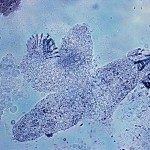Présentation
Antoine Claessens
Dynamique des Interactions Membranaires Normales et Pathologiques UMR CNRS Université de Montpellier
INTRO
Malaria in The Gambia is seasonal, with virtually all cases occurring during or just after the four months wet season. As there is very little transmission during the dry season, the reservoir for Plasmodium falciparum parasites is thought to be within asymptomatic chronic infections. How the parasite population can switch from a typically high parasitaemia virulent phenotype in the wet season to a ‘dormant-like’ state in the dry season is not understood.
METHODS
To address this question, at the start of the dry season, we established a cohort with 60 P. falciparum-positive asymptomatic Gambian participants who were bled monthly for 6 months. 45% were still carriers at the end of the dry season.
RESULTS
We now have a unique dataset of parasite and human serum samples from the same individuals over a 6-month period to investigate how P. falciparum establishes a chronic infection.
In collaboration with MalariaGEN, parasite genomes are being sequenced to investigate the genetic diversity in the wet and dry seasons. With the Conway lab at LSHTM, we analyse how the parasite senses its environment and adapt to it using (1) Parasite Multiplication Rate assays, (2) RNA-Seq, to compare transcriptomes across monthly timepoints. Our novel protocol can sequence a whole transcriptome from as few as 1000 parasites.
DISCUSSION
This study design, which has the potential to answer a multitude of biological questions, will greatly advance our understanding of the parasite, host and vector interactions, with direct implications for malaria eradication.
Link to your website: https://openlabnotebooks.org/category/scientist/antoine-claessens/

